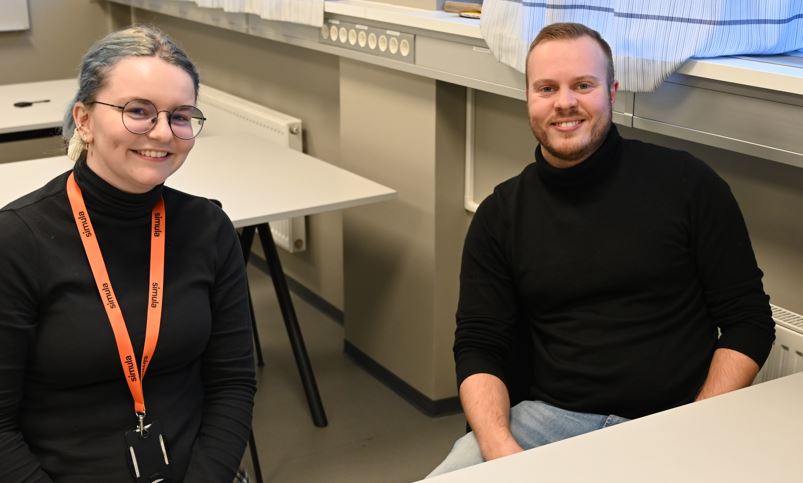Although the university has traditionally been envisioned as a place where crowds of students learn by taking notes while listening to a professor lecturing, research has shown that students learn more effectively through collaboration, discussion, and working on exercises.
In the mathematics and science courses at UiO, these activities often take place in group sessions, weekly seminars where students are given the opportunity to solve problems and discuss concepts previously covered in their lectures. At the heart of these seminars, you’ll find the learning assistants—experienced students who take a teaching role in direct, often one-on-one, interaction with more junior students.
While group sessions have been an integral part of teaching at the University of Oslo for many years, over the last five years that the Faculty of Mathematics and Natural Sciences has been systematically developing a Learning Assistant (LA) program to support our learning assistants and provide them with essential training in top-quality research-based teaching methods.
The LA program was originally introduced to the faculty in 2018 by Tor Ole Odden, inspired by similar work developed by the University of Boulder in Colorado (USA). Initially brought to life at the Department of Physics, the programme soon branched into Mathematics, Chemistry, Biosciences and Pharmacy. As of 2023, several dozen learning assistants have been through the workshops, and participation is at an all-time high.
Throughout this period, the LA program at the University of Oslo has increasingly been used to improve student participation, variety in teaching methods, student-tutor interaction and even the course content itself, ultimately enhancing the learning outcome across disciplines and student groups.
The programme is currently being taught by a cross-faculty team with a passion for excellent science education, consisting of Tor Ole Odden (physics), Christin Borge (mathematics), Lex Nederbragt (biosciences) and Audun Skau Hansen (chemistry).
While the original LA-program has a transformative and holistic focus on higher education, the local adaptation has been focused on research-based teaching techniques. This includes the value of an engaging and inclusive learning environment, student-active learning, diversity in teaching methods, bite-size portions of learning theory, observation, computational thinking and sensemaking. At its core, the training is designed to put the student into focus and allow for learning assistants to develop confidence in their proficiency as teachers.
The experience gained from extending the model to Scandinavian higher education can also provide valuable insight into how it might be adapted to other European universities, so the work has been carefully documented and evaluated. Initial results from research on the first three semesters of the program have been submitted to the European Journal for Physics for publication under the title “Implementing the Learning Assistant Model in European Higher Education”, authored by Tor Ole Odden, Anders Lauvland, Maria Vetleseter Bøe and Ellen Karoline Henriksen. One central effect of the program, according to the authors, is that the learning assistants become better versed in active learning pedagogy as a result of their participation.
Participating in the LA-program

Photo: Ragnhild Olsby
Each semester, participating learning assistants take part in six interactive workshops, where they discuss and analyze essential skills and techniques for group teaching.
The participants at the workshops are given tasks to try out in their own teaching, like giving minilectures, observation of the learning situations and questioning strategies. The workshops thus provide time and space for getting familiar with topics of higher learning, and the opportunity to collaborate with other learning assistants across the faculty.
Amongst the participants of autumn 2022 we find Frida Marie Engøy Westby and Even Werner, who both agree that the work as learning assistants can be challenging, and who value the opportunity to improve their teaching through the workshops.
“The seminars have helped me explain different teaching situations I have experienced”, explains Frida. “They have given me a framework for reflecting around my own thoughts and pass them on to my colleagues. To me, they have been very important to gather an “educational toolbox” for my work. The seminars have made me sturdier as a Learning Assistant, and I believe it enhances everyone´s teaching for the better.”
Even agrees, adding that:
“I have learned many different strategies and methods that I have incorporated into my own classes. The seminars really require us to evaluate ourselves and our work, which is great for further improvement.
We have also learned a lot about the different strategies that work for different types of subjects due to the many departments involved with the seminars. All in all, I think it have made me a better tutor”.
